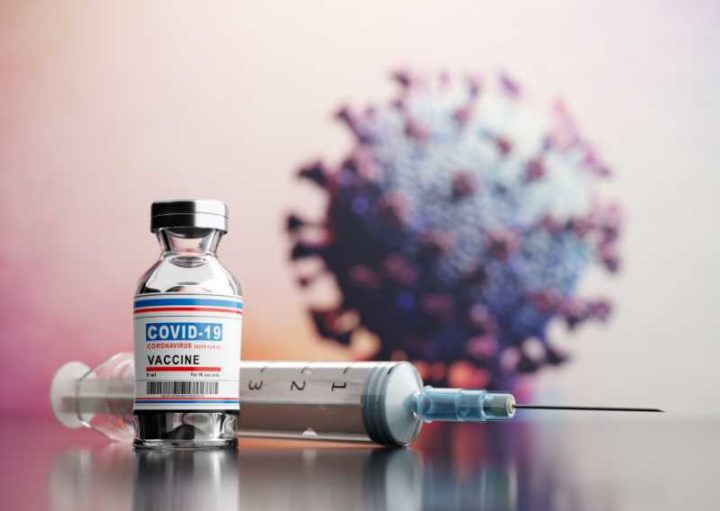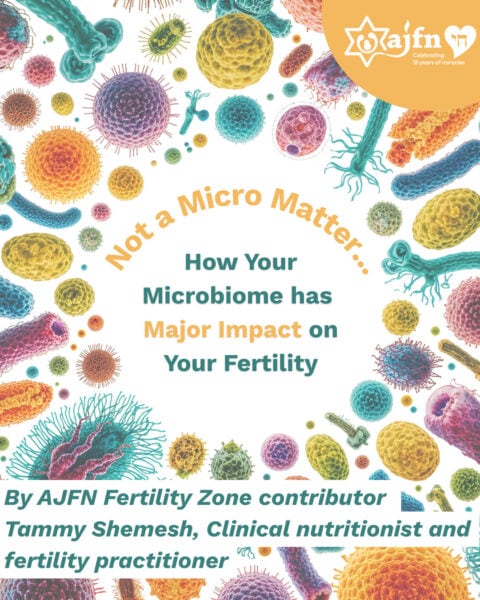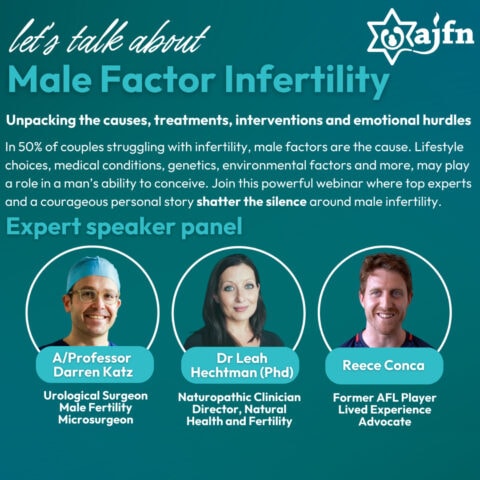What You Need to Know About COVID-19 Vaccination and Fertility
- COVID-19 vaccination is recommended for everyone 12 years of age and older, including people who are trying to get pregnant now or might become pregnant in the future, as well as their partners.
- Currently no evidence shows that any vaccines, including COVID-19 vaccines, cause fertility problems (problems trying to get pregnant) in women or men.
- If you get pregnant after receiving your first shot of a COVID-19 vaccine that requires two doses (i.e., Pfizer-BioNTech COVID-19 vaccine or Moderna COVID-19 vaccine), you should get your second shot to get as much protection as possible.
CDC and Medical Professionals Recommend COVID-19 Vaccination for People Who Want to Have Children
COVID-19 vaccination is recommended for everyone 12 years of age and older, including people who are trying to get pregnant now or might become pregnant in the future, as well as their partners.
Professional medical organizations serving people of reproductive age, including adolescents, emphasize that there is no evidence that COVID-19 vaccination causes a loss of fertility.1–4 These organizations also recommend COVID-19 vaccination for people who may consider getting pregnant in the future.
Professional societies for male reproduction recommend that men who want to have babies in the future be offered COVID-19 vaccination.5 There is no evidence that vaccines, including COVID-19 vaccines, cause male fertility problems.
Pregnancy After Vaccination
Many people have become pregnant after receiving a COVID-19 vaccine, including some who got vaccinated during COVID-19 vaccine clinical trials.6–8 In addition, a recent report using the v-safe safety monitoring system data showed that 4,800 people had a positive pregnancy test after receiving a first dose of an mRNA COVID-19 vaccine (i.e., Pfizer-BioNTech or Moderna).9 Another report using data from 8 U.S. healthcare systems documented more than 1,000 people who completed COVID-19 vaccination (with any COVID-19 vaccine) before becoming pregnant.10
Research Studies in People Trying to Become Pregnant
There is currently no evidence that antibodies made following COVID-19 vaccination or that vaccine ingredients would cause any problems with becoming pregnant now or in the future. Learn how COVID-19 vaccines work. In a recent in vitro fertilization (a type of fertility treatment) study, researchers compared pregnancy success rates among three groups of women.
Women with:
- Antibodies from having been vaccinated against COVID-19
- Antibodies from having a recent infection with the virus that causes COVID-19
- No antibodies from either having a recent infection with the virus that causes COVID-19 or from having been vaccinated against COVID-19
The study found no differences in pregnancy success rates among the three groups.11
Like with all vaccines, scientists are studying COVID-19 vaccines carefully for side effects and will report findings as they become available.
Research Studies of Fertility in Healthy Males
Currently no evidence shows that any vaccines, including COVID-19 vaccines, cause male fertility problems. A recent small study of 45 healthy men who received an mRNA COVID-19 vaccine (i.e., Pfizer-BioNTech or Moderna) looked at sperm characteristics, like quantity and movement, before and after vaccination.12 Researchers found no significant changes in these sperm characteristics after vaccination.
Fever from illness has been associated with short-term decrease in sperm production in healthy men.13 Although fever can be a side effect of COVID-19 vaccination, there is no current evidence that fever after COVID-vaccination affects sperm production.
Safety Monitoring
Findings from U.S. vaccine safety monitoring systems are preliminary but reassuring. These data, which included people who received mRNA vaccines (i.e., Pfizer-BioNTech or Moderna), did not identify any safety concerns for pregnant people who were vaccinated or for their babies. Pregnant people reported similar types and frequencies of side effects as non-pregnant people, including serious side effects.9 Serious nausea and vomiting were slightly more common among pregnant people. Pregnancy outcomes in vaccinated people were similar to those in studies of pregnant people conducted before the COVID-19 pandemic. Another report looked at pregnant people enrolled in the v-safe pregnancy registry who were vaccinated before 20 weeks of pregnancy. Scientists did not find an increased risk for miscarriage among people who received an mRNA COVID-19 vaccine during pregnancy.14 Additional data are being gathered on pregnancy outcomes in people who received a COVID-19 vaccine early during pregnancy and the health of their babies. CDC will report findings as they become available.
Managing Side Effects
If you have side effects after vaccination, talk to your doctor about taking over-the-counter medicine, such as ibuprofen, acetaminophen, or antihistamines, for any pain and discomfort you may experience after getting vaccinated, including fever. You can take these medications to relieve short-term side effects after getting vaccinated if you have no medical reasons that prevent you from taking these medications. If you are pregnant (or may become pregnant) and have a fever following vaccination, you should take acetaminophen (Tylenol®) because fever—for any reason—has been associated with adverse pregnancy outcomes. It is not recommended you take these medicines before vaccination for the purpose of trying to prevent side effects. Learn about other ways to relieve side effects.
Recommendations
COVID-19 vaccination is recommended for everyone 12 years of age and older, including people who are trying to get pregnant now or might become pregnant in the future, as well as their partners.
There is no recommendation for routine pregnancy testing before receiving a COVID-19 vaccine. If you are trying to become pregnant or may want to become pregnant, you do not need to avoid receiving a COVID-19 vaccine. Those who are trying to become pregnant do not need to avoid pregnancy after COVID-19 vaccination. If you get pregnant after receiving your first shot of a COVID-19 vaccine that requires two doses (i.e., Pfizer-BioNTech COVID-19 vaccine or Moderna COVID-19 vaccine), you should get your second shot to get as much protection as possible.
References
- American Society of Reproductive Medicine (ASRM), American College of Obstetricians and Gynecologists (ACOG) and the Society for Maternal-Fetal Medicine (SMFM) Issue Joint Statement: Medical Experts Continue to Assert that COVID Vaccines Do Not Impact Fertility. February 5, 2021. Available at: https://www.asrm.org/news-and-publications/news-and-research/press-releases-and-bulletins/asrm-smfm-acog-issue-joint-statement-medical-experts-continue-to-assert-that-covid-vaccines-do-not-impact-fertility/external icon. Accessed August 6, 2021.
- American Academy of Pediatrics (AAP). About the COVID-19 Vaccine: Frequently Asked Questions. Available at: https://services.aap.org/en/pages/2019-novel-coronavirus-covid-19-infections/covid-19-vaccine-for-children/about-the-covid-19-vaccine-frequently-asked-questions/external icon. Accessed August 6, 2021.
- American College of Obstetricians and Gynecologists (ACOG). COVID-19 Vaccination Considerations for Obstetric–Gynecologic Care. https://www.acog.org/clinical/clinical-guidance/practice-advisory/articles/2020/12/covid-19-vaccination-considerations-for-obstetric-gynecologic-careexternal icon. Accessed August 6, 2021.
- American Society for Reproductive Medicine (ASRM) Patient Management and Clinical Recommendations During the Coronavirus (COVID-19) Pandemic: UPDATE No. 16 – Reproductive Facts Regarding COVID-19 Vaccination. Available at: https://www.asrm.org/covid-update-16external icon. Accessed August 6, 2021.
- Joint Statement Regarding COVID-19 Vaccine in Men Desiring Fertility from the Society for Male Reproduction and Urology (SMRU) and the Society for the Study of Male Reproduction (SSMR). American Society for Reproductive Medicine. Available at: https://www.asrm.org/news-and-publications/covid-19/statements/joint-statement-regarding-covid-19-vaccine-in-men-desiring-fertility-from-the-society-for-male-reproduction-and-urology-smru-and-the-society-for-the-study-of-male-reproduction-ssmr/external icon. Accessed August 6, 2021.
- Vaccines and Related Biological Products Advisory Committee Meeting. FDA Briefing Document. Janssen Ad26.COV2.S Vaccine for the Prevention of COVID-19. February 26, 2021. Available at: https://www.fda.gov/media/146217/downloadexternal icon. Accessed August 6, 2021.
- Vaccines and Related Biological Products Advisory Committee Meeting. FDA Briefing Document. Pfizer-BioNTech COVID-19 Vaccine. December 10, 2020. Available at: https://www.fda.gov/media/144245/downloadexternal icon. Accessed August 6, 2021.
- Vaccines and Related Biological Products Advisory Committee Meeting. FDA Briefing Document. Moderna COVID-19 Vaccine. December 17, 2020. Available at: Vaccines and Related Biological Products Advisory Committee December 17, 2020 Meeting Briefing Document – FDAexternal icon. Accessed August 6, 2021.
- Shimabukuro TT, Kim SY, Myers TR, et al. Preliminary Findings of mRNA Covid-19 Vaccine Safety in Pregnant Persons. N Engl J Med. 2021 Jun 17;384(24):2273–2282. doi: 10.1056/NEJMoa2104983.
- Razzaghi H, Meghani M, Pingali C, et al. COVID-19 Vaccination Coverage Among Pregnant Women During Pregnancy — Eight Integrated Health Care Organizations, United States, December 14, 2020–May 8, 2021. MMWR Morb Mortal Wkly Rep 2021;70:895–899.
- Morris RS. SARS-CoV-2 Spike Protein Seropositivity from Vaccination or Infection Does Not Cause Sterility. F&S Reports. Published online June 2, 2021. doi: 1016/j.xfre.2021.05.010.
- Gonzalez DC, Nassau DE, Khodamoradi K, et al. Sperm Parameters Before and After COVID-19 mRNA Vaccination. JAMA. Published online June 17, 2021. doi: 10.1001/jama.2021.9976.
- Carlsen E, Andersson A-M, Petersen JH, E.Skakkebæk N. History of Febrile Illness and Variation in Semen Quality. Hum Reprod 2003;18(10):2089–2092. doi: 1093/humrep/deg412.
- Zauche LH, Wallace B, Smoots AN, et al. Receipt of mRNA COVID-19 Vaccines Preconception and During Pregnancy and Risk of Self-Reported Spontaneous Abortions, CDC v-safe COVID-19 Vaccine Pregnancy Registry 2020–21. Available at: https://www.researchsquare.com/article/rs-798175/v1external icon. Accessed August 10, 2021.
Content source: National Center for Immunization and Respiratory Diseases (NCIRD), Division of Viral Diseases





